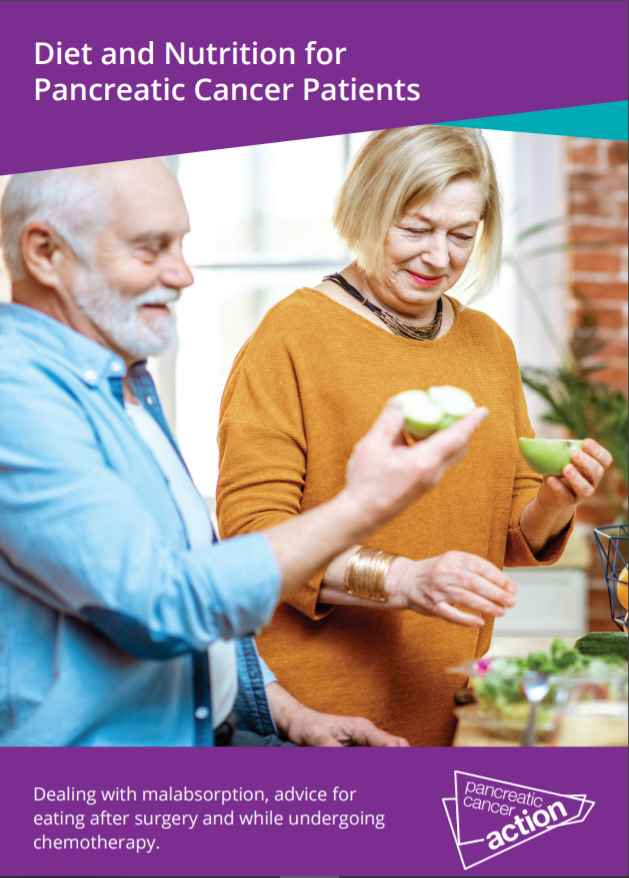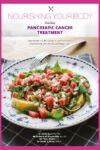Diet and Surgery for pancreatic cancer
Eating before surgery
Surgery for pancreatic cancer is a major operation and you will be assessed by your medical team to make sure you are fit enough for surgery and it is the right choice for you.
If you are losing or have lost weight you may be advised to try and build up your weight and strength prior to the operation. If weight loss is due to damage to the pancreas then you may be prescribed pancreatic enzyme replacement therapy to ensure you are absorbing all of the nutrients from your food.
Suggestions to help you gain or maintain weight include
- Eat little and often, aiming for a small meal or snack every 2-3 hours
- Have your biggest meal when you are most hungry
- Eat more protein rich foods (meat, fish, eggs, cheese, beans, lentils and pulses)
- Fortify your meals through swaps such as milk for cream or the addition of milk powder to dairy or mashed potato. Try adding cheese to sauces or grated onto meals. Top fruits or cereals with honey or golden syrup.
- Your doctor or dietitian may recommend high calorie prescription supplements which come in many forms; juice, milkshakes and puddings.
free recipe book
Eating after surgery
After some operations you will be advised not to eat for a few days to let your system heal. When your doctors are happy, you will begin with sips of water before reintroducing a light diet, soft diet and building up to eating and drinking normally again. If you weren’t taking them before, you may need pancreatic enzyme replacement therapy to ensure you are able to absorb the nutrients from your food now a portion of your pancreas is missing.
What is a light diet?
During the first days or week after surgery, your medical team and dietitian will help you to start eating a light diet. Nurses will be able to provide useful information about what foods to try. Generally, this is soft, moist and easily digested food.
When recovering from surgery and eating a light diet there are some foods and food groups to avoid;
- Spicy foods
- High fat foods
- Foods that contain lots of cheese (eg pizza, lasagne)
- High fibre foods
- Good with bits and pips in
- Fizzy drinks and alcohol
Some suggested foods for a light diet include:
| Breakfast |
Porridge, cornflakes or puffed rice cereal, white bread and butter or spread, smooth apple or orange juice |
| Main meals |
Soup, white bread and butter or spread, white fish, mince, mashed potatoes, soft pasta, mousse, custard or milky puddings, bananas or fruit compotes |
| Snacks |
Jelly, mousse, yoghurt (no pips), chocolate (without nuts or dried fruit), crème caramel, bagel with soft cheese |
Always check with your dietitian or medical team if you are unsure of what type of diet you should be on.
 The information provided in this site, or through links to other websites, is not a substitute for medical or professional care and should not be relied upon as such. Read our disclaimer.
The information provided in this site, or through links to other websites, is not a substitute for medical or professional care and should not be relied upon as such. Read our disclaimer.
Sources and references for this information product will be supplied on request. Please contact us quoting the Information Product number below:
| Information Product № |
PCA0015v1 |
Published |
15/10/2019 |
| Last Updated |
08/09/2022 |
Next Review Due |
08/09/2025 |
|---|


 The information provided in this site, or through links to other websites, is not a substitute for medical or professional care and should not be relied upon as such.
The information provided in this site, or through links to other websites, is not a substitute for medical or professional care and should not be relied upon as such.